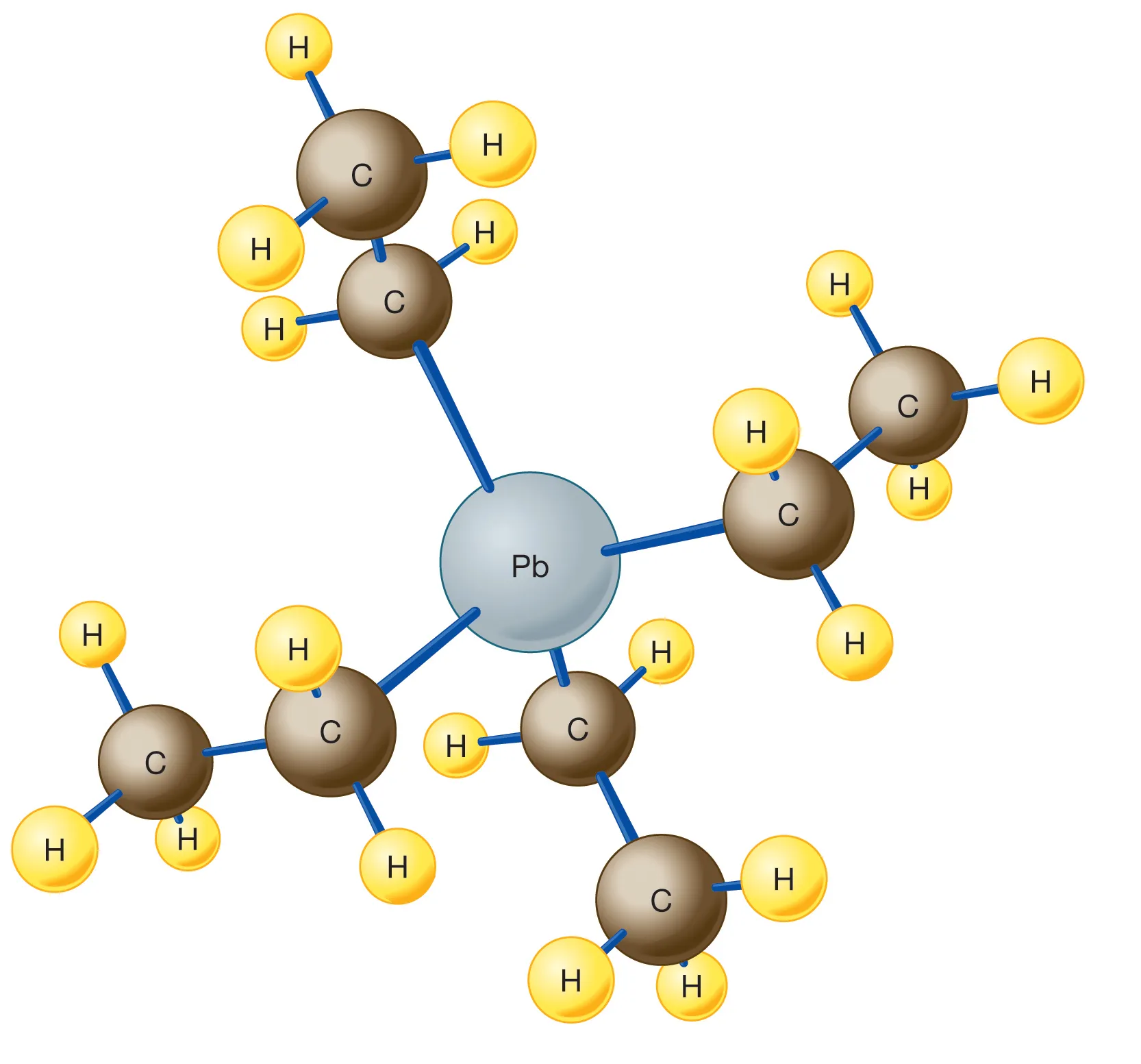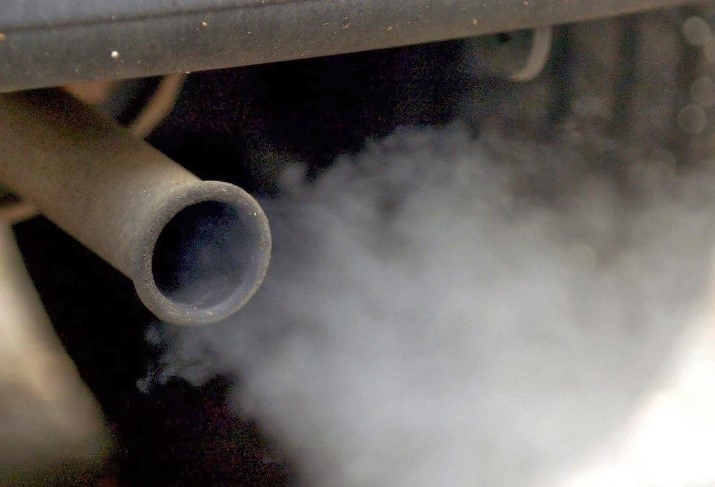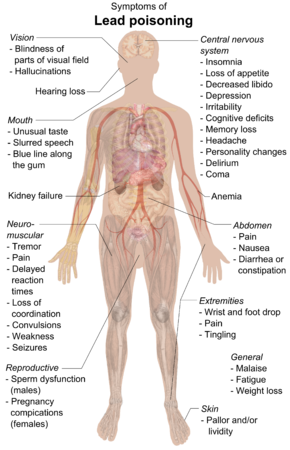
The toxic chemical compound that has been banned throughout the world except Iraq, Yamen, and Algeria countries!
Basically, Tetraethyl Lead also spelled as Tetraethyllead (TEL), it is an organolead compound containing the toxic metal lead that has a chemical formula (CH3CH2)4Pb . It is used as additive compound in fuel products to enhance the octane number. Historically, this compound was used as an antinocking agent in car engine to help burning the fuel through increasing its octane number by Research Center of General Motors Company in 1920 for the first time[i].

In the hot cylinder of a gasoline engine, the bonds between the lead atom and the ethyl groups are broken. Upon combustion, the lead atom forms lead oxide (PbO), which prevents fractions of the fuel mixture from burning too quickly and causing a highly undesirable “engine knock.” PbO can easily spread out through the air and cause to contaminate the environment and can cause acute or chronic lead poisoning if inhaled or absorbed through the skin.

Indeed, the industrial chemist widely given credit for discovering the antiknock properties of the compound, Thomas Midgley, Jr., was forced to leave his job for several months in 1923 in order to recuperate from lead poisoning. From 1923 to 1925 several workers suffered agonizing deaths from acute lead poisoning at the first plants built by the General Motors Corporation.
Exposure to lead can seriously harm a child’s health and cause well-documented adverse effects such as:
· Damage to the brain and nervous system
· Slowed growth and development
· Learning and behavior problems
· Hearing and speech problems
· This can cause: Lower IQ
· Decreased ability to pay attention Underperformance in school
There is also evidence that adult exposure to lead can cause long-term harm, including
· Reproductive problems (in both men and women)
· High blood pressure and hypertension
· Nerve disorders
· Memory and concentration problems
· Muscle and joint pain
· Cancer
· Comma and death

Concerns were later raised over the toxic effects of lead in the world. Starting in the 1970s, many countries began phasing out TEL in automotive fuel. In 2011 a study, backed by the United Nations, estimated that the removal of TEL had resulted in $2.4 trillion in annual benefits, and 1.2 million fewer premature deaths.
Banning leads in gasoline started from 1970 by many countries in the world. It is completely banned in USA in 1996, Canada 1990, Japan 1986, and EU 2000.
According to the international reports that using lead in gasoline has been banned in the most of the countries throughout the world by now. Only Algeria, Iraq, and Yemen continued widespread use of leaded gasoline. In July 2021, Algeria had halted its sale[i], [ii], [iii], [iiii] .

References:
[i] The Editors of Encyclopaedia Britannica, Adam Augustyn, Dec 07 2018.
[ii] Stasik, M.; Byczkowska, Z.; Szendzikowski, S.; Fiedorczuk, Z. (December 1969). "Acute tetraethyllead poisoning". Archiv für Toxikologie. 24 (4): 283–291. doi:10.1007/BF00577576 (inactive 31 May 2021). PMID 5795752.
[iii] Dictionary of Toxicology, Third Edition, Elsevier, 2015, pages 329-353, https://doi.org/10.1016/B978-0-12-420169-9.00020-5

